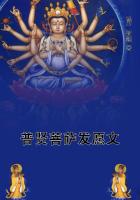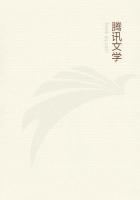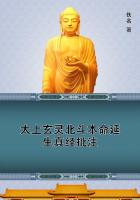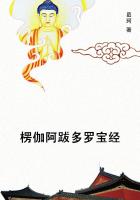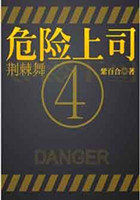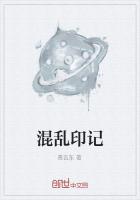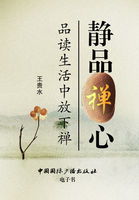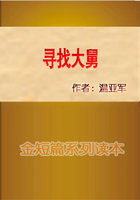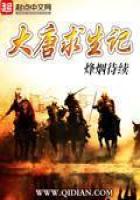But there is a much larger class of young persons who ought not to be excluded from the library,not because they have decided intellectual cravings and are mentally mature,but because they have capacities for the cultivation of good tastes,and because the cultivation of such tastes cannot be begun too early.There is no greater mistake in morals than that often covered by the saying,harmless enough literally,"Boys will be boys."This saying is used perhaps oftener than for any other purpose to justify boys in doing things which are morally not fit for men to do,and is thus the expression of that great error that immoralities early in life are to be expected and should not be severely deprecated.The same misconception of the relations of youth to maturity and of nature's great laws of growth and development is seen in that common idea that children need not be expected to have any literary tastes;that they may well be allowed to confine their reading to the frivolous,the merely amusing.That this view is an erroneous one thought and observation agree in showing.Much like the caution of the mother who would not allow her son to bathe in the river till he had learned to swim,is that of those who would have youth wait till a certain age,when they ought to have good tastes formed,before they can be admitted to companionship with the best influences for the cultivation of them.Who will presume to set the age at which a child may first be stirred with the beginnings of a healthy intellectual appetite on getting a taste of the strong meat of good literature?This point is one of the first importance.No after efforts can accomplish what is done with ease early in life in the way of forming habits either mental or moral,and if there is any truth in the idea that the public library is not merely a storehouse for the supply of the wants of the reading public,but also and especially an educational institution which shall create wants where they do not exist,then the library ought to bring its influences to bear on the young as early as possible.
And this is not a question of inducing young persons to read,but of directing their reading into right channels.For in these times there is little probability that exclusion from the public library will prevent their reading.Poor,indeed,in all manner of resources,must be the child who cannot now buy,beg,or borrow a fair supply of reading of some kind;so that exclusion from the library is likely to be a shutting up of the boy or girl to dime novels and story papers as the staple of reading.
Complaints are often made that public libraries foster a taste for light reading,especially among the young.Those who make this complaint too often fail to perceive that the tastes indulged by those who are admitted to the use of the public library at the age of twelve or fourteen,are the tastes formed in the previous years of exclusion.A slight examination of facts,such as can be furnished by any librarian of experience in a circulating public library,will show how little force there is in this objection.
Nor should it be forgotten,in considering this question,that to very many young people youth is the time when they have more leisure for reading than any other portion of life is likely to furnish.At the age of twelve or fourteen,or even earlier,they are set at work to earn their living,and thereafter their opportunities for culture are but slight,nor are their circumstances such as to encourage them in such a work.We cannot begin too early to give them a bent towards culture which shall abide by them and raise them above the work-a-day world which will demand so large a share of their time and strength.The mechanic,the farmer,the man in any walk of life,who has early formed good habits of reading,is the one who will magnify his calling,and occupy the highest positions in it.And to the thousands of young people,in whose homes there is none of the atmosphere of culture or of the appliances for it,the public library ought to furnish the means of keeping pace intellectually with the more favored children of homes where good books abound and their subtle influence extends even to those who are too young to read and understand them.If it fails to do this it is hardly a fit adjunct to our school system,whose aim it is to give every man a chance to be the equal of every other man,if he can.
It is not claimed that the arguments used in support of an age limitation are of no force;but it is believed that they are founded on objections to the admission of the young to library privileges which are good only as against an indiscriminate and not properly regulated admission,and which are not applicable to the extension of the use of the library to the young under such conditions and restrictions as are required by their peculiar circumstances.
For example,the public library ought not to furnish young persons with a means of avoiding parental supervision of their reading.A regulation making the written consent of the parent a prerequisite to the registration of the name of a minor,and the continuance of such consent a condition of the continuance of the privilege,will take from parents all cause for complaint in this regard.
Neither should the library be allowed to stand between pupils in school and their studies,as it is often complained that it does.
To remove this difficulty,the relations of the library to the school system should be such that teachers should be able to regulate the use of the library by those pupils whose studies are evidently interfered with by their miscellaneous reading.The use of the library would thus be a stimulus to endeavor on the part of pupils who would regard its loss as the probable result of lack of diligence in their studies.
Again,it must be understood that to the young,as to all others,the library is open only during good behavior.The common idea that children and youth are more likely than older persons to commit offenses against library discipline is not borne out by experience;but were it true,a strict enforcement of rules as to fines and penalties would protect the library against loss and injury,the fear of suspension from the use of the library as the result of carelessness in its use,operating more strongly than any other motive to prevent such carelessness.
If there are other objections to the indiscriminate admission of the young to the library,they can also be met by such regulations as readily suggest themselves,and should not be allowed to count as arguments against a judicious and proper extension of the benefits of the library to the young.


